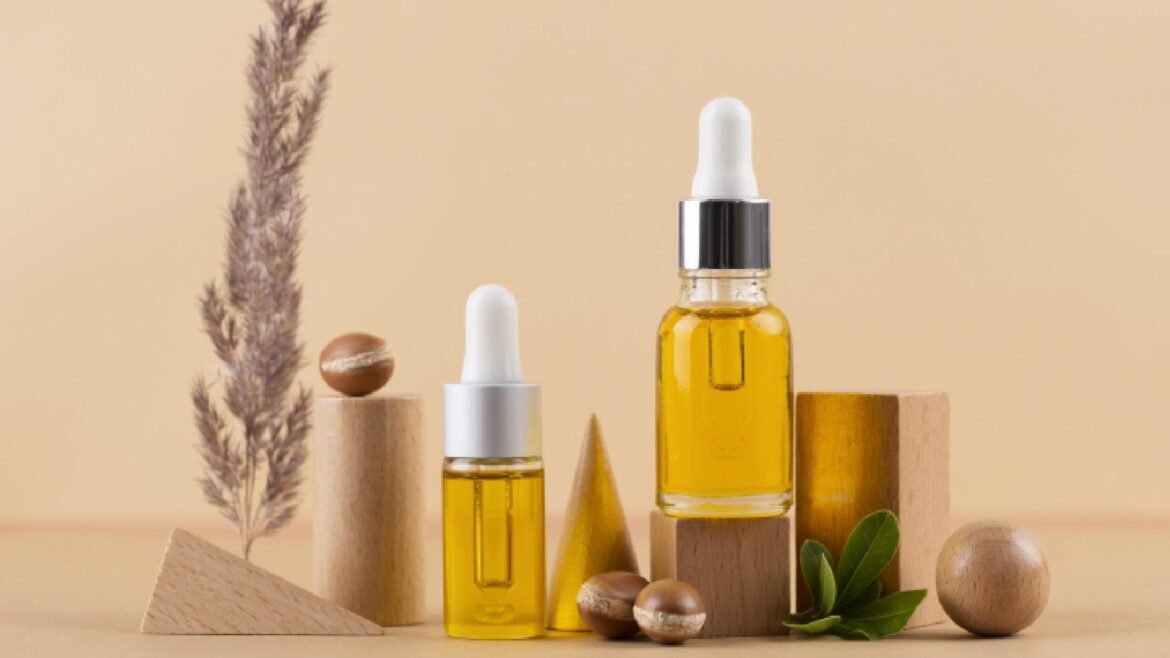Carrier oils can be used alone or mixed with essential oils to improve skin health. Learn which carrier oils are best and how to use them.
Carrier oils are vegetable oils that are often used with essential oils in nature to make them highly concentrated. Because carrier oils are mixed with essential oils, you won’t experience any skin irritation that can occur if you use essential oils directly. You can also pick up a bottle of carrier oil and use it on your face. Wondering which carrier oil is best for your skin? Let us reveal a list of the best carrier oils that women with different skin types can use.
What are carrier oils?
Carrier oils are vegetable oils extracted from the fatty parts of plants such as nuts, seeds, and kernels. They are used to dilute essential oils and other concentrated plant extracts before applying them to the skin. According to Dr. Shraddha Deshpande, a cosmetic surgeon, carrier oils primarily help essential oils penetrate the skin, and are often used in aromatherapy, massage, and skin care.
The best carrier oil for your skin
There are many oils you can use in your skin care routine. Here are a few:
1. Jojoba oil
Experts say jojoba oil mimics the skin’s natural sebum and is non-comedogenic, highly moisturizing, and anti-inflammatory. A 2012 study found that jojoba oil’s anti-inflammatory and healing properties may help prevent acne. Complementary Medicine Research.
2. Sweet almond oil
Rich in vitamins A, E and fatty acids, sweet almond oil soothes and nourishes the skin while reducing dryness and inflammation. Vitamin E absorbs UV rays, which may help protect the skin from sun damage, according to a 2018 study. Scientific Reports.
See also

3. Coconut oil
Coconut oil is popular because it deeply moisturizes the skin, and it also has antibacterial and antifungal properties, but it can clog pores, so it shouldn’t be used by people with acne-prone skin, says Dr. Deshpande.
4. Argan oil
Rich in Vitamin E and essential fatty acids, argan oil is non-greasy and quickly absorbed into the skin. Experts say that argan oil can improve skin elasticity and slow the onset of sagging skin and wrinkles.
5. Grapeseed oil
This is another lightweight oil that is easily absorbed by the skin. Grapeseed oil is high in antioxidants and has anti-inflammatory and non-comedogenic properties.
6. Olive oil
Rich in antioxidants and vitamins A, D, E and K, olive oil is not only great for cooking, it’s also great for your skin – deeply hydrating, soothing and repairing dry, damaged skin.

7. Avocado oil
It’s also highly moisturizing, thanks to the vitamins A, D, and E it contains. Experts say it’s great for dry, mature, and sensitive skin because it stimulates collagen production.
Customize your feed by choosing the topics that interest you.
Customize now
How do you choose the right carrier oil for different skin types?
When choosing the best carrier oil for your skin, keep the following points in mind.
- Dry Skin: Choose rich oils like avocado oil, olive oil, or sweet almond oil for deep moisturization and nourishment.
- Oily Skin: Choose lightweight oils like grapeseed oil or jojoba oil, which balance sebum production without clogging pores.
- Sensitive Skin: Look for gentle, soothing oils, such as sweet almond oil or jojoba oil, which are less likely to cause irritation.
- Combination skin: Argan oil is a good option as it provides a balanced amount of moisture without being too heavy or light.
- Aging Skin: Argan oil and avocado oil are great options, as they increase elasticity and help reduce the appearance of fine lines and wrinkles.
How to Use Carrier Oils with Essential Oils?
To use carrier oils with essential oils, follow these steps:
- Dilute essential oils by mixing them with a carrier oil. A standard dilution ratio for adults is 2-3 drops of essential oil per 1 tablespoon of carrier oil.
- Combine the essential oil and carrier oil in a clean glass bottle or bowl and mix thoroughly.
- If desired, gently apply the mixture to your skin in a circular motion.
Most carrier oils can be mixed with any type of essential oil, but experts say it’s important to consider the properties of both the carrier oil and the essential oil. For example, a light carrier oil like grapeseed oil might be appropriate for your face, while a thicker oil like coconut oil might be better for your body.
Carrier oils can be used without essential oils as they have benefits on their own – they can hydrate, nourish and protect the skin.
